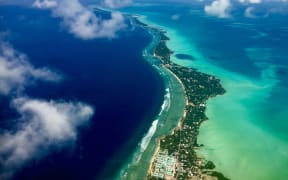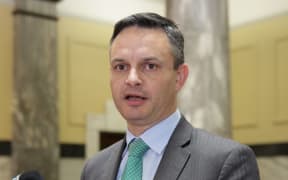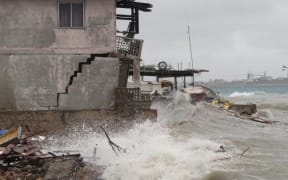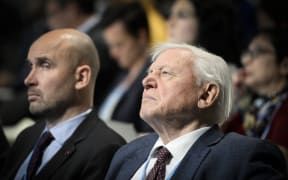Greens co-leader James Shaw is still involved in talks at an international conference in a bid to avoid deadlock on combating climate change.
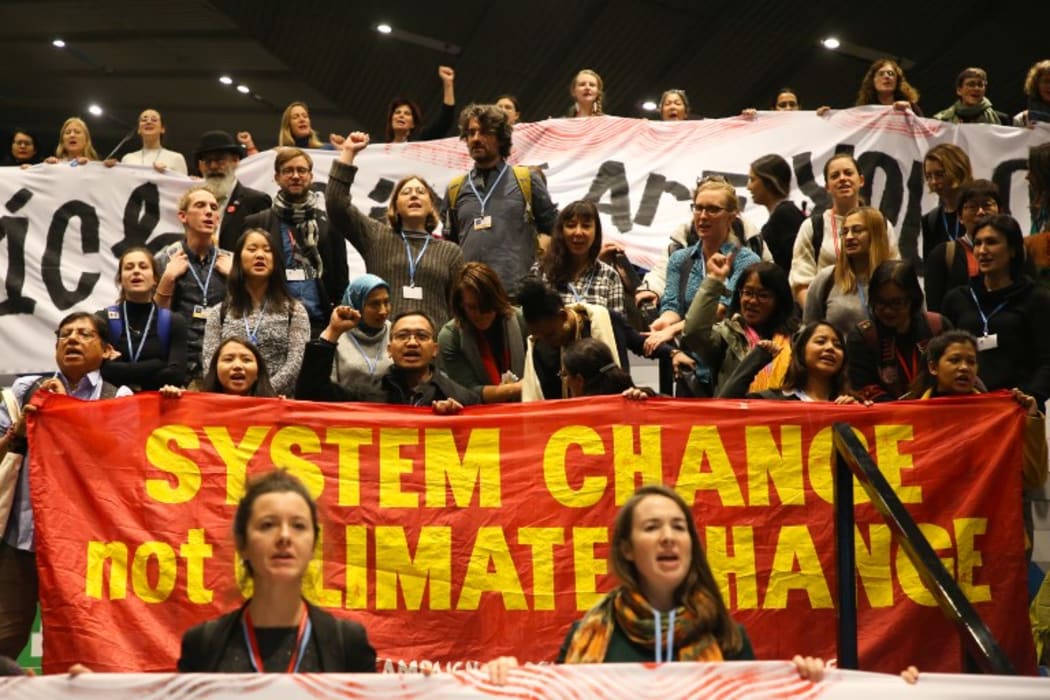
Demonstrators in Katowice, Poland, demand faster change worldwide in response to climate change. Photo: AFP
Negotiations at the climate conference in Katowice in Poland have continued past their official close as delegates from almost 200 countries make a last ditch attempt to find consensus on how to tackle rising world temperatures.
The conference is trying to set rules to flesh out the 2015 Paris Agreement, which aims to limit global temperature rises to less than 2 degrees Celsius.
The talks have been clouded by political divisions. Progress has been made, but delegates remain deadlocked on some issues which pit the poor countries against the rich.
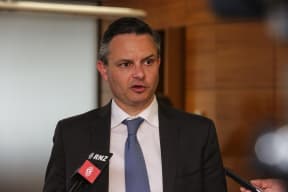
James Shaw Photo: RNZ / Richard Tindiller
Mr Shaw, who is climate change minister, says he's still confident a deal can be reached.
He is co-chairing talks around setting up a framework to allow countries to co-operate with each other on carbon markets to help meet emission reduction targets.
The draft text will require developed countries to give $100 billion a year to poorer countries to help them adapt to climate change by 2020.
Five years ago, the United Nations climate talks set up a mechanism to analyse the damage that now will be unavoidable as a result of the 1 degree Celsius hike in global temperatures that has already occurred, and to look at ways of dealing with it.
Frontline countries hope to establish sources of funding that would help them cope with rising losses, and want those contributions adjusted over time to meet changing needs.
But industrialised nations - which have historically emitted the most carbon emissions - have refused to pay any form of "compensation" to those who are less to blame for global warming yet find themselves bearing the brunt.
Instead they have mainly offered help with access to insurance policies.
References to dealing with loss and damage from climate change were confined to a footnote in the Katowice text in the late stages of negotiations.
"We do not want to see the Paris Agreement watered down," warned former Maldives president Mohamed Nasheed, who is leading his island-nation's delegation at the talks.
Language on loss and damage needed to be part of the Paris rulebook, he emphasised.
No deal a bleak prospect for poorer nations
Analysts said failing to give teeth to the UN loss and damage mechanism would leave poorer countries slammed by climate extremes with nowhere to turn.
Nick Mabey, head of the E3G climate change think-tank in London, said it was not only poor countries that needed better information on dealing with more costly climate damage at home.
In richer nations, those discussions are not happening yet, but if the problem became a domestic political issue, it could break the deadlock, he said.
Harjeet Singh, who tracks the talks for ActionAid International, said efforts to support those worst-hit by climate change should be at the heart of the Paris Agreement.
"It's about people and planet, not just about how many solar panels we've put in," he told the Thomson Reuters Foundation.
"If your agreement can't keep people safe, then what is the point of this agreement?"
- Reuters / RNZ
